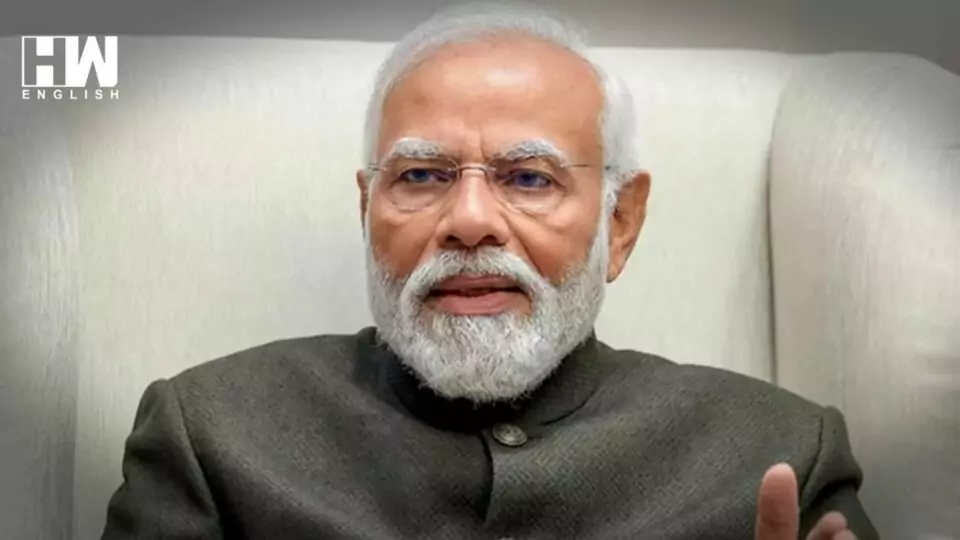Prime Minister Narendra Modi said on Monday that Manipur’s condition had markedly improved due to the timely intervention of the Centre and efforts by the state government. He emphasized the importance of collective responsibility in addressing the sensitive situation in Manipur.
In an interview with the Assam Tribune, Prime Minister Modi underscored the dedication of the government’s resources and administrative machinery to resolving the Manipur conflict. He noted Home Minister Amit Shah’s active involvement, including staying in Manipur during the peak of the conflict and holding over 15 meetings with stakeholders. The Prime Minister assured ongoing support from the Central government, including financial packages for relief and rehabilitation efforts.
The Manipur conflict erupted in early May 2023. After two months of silence, the Prime Minister commented for the first time a day after a video, allegedly showing two women being paraded naked by a group of men in Manipur, went viral on social media in July.
How did the conflict begin?
The conflict in Manipur, India’s northeastern state, erupted in early May between the Meitei majority and the Kuki minority, with historical ethnic tensions fueling the violence. Recent discontent, fueled partly by perceived discrimination by the Meitei-controlled state government, intensified following the Manipur HC granted Meiteis “scheduled tribal status,” provoking fears among Kukis of land loss and marginalization. This ruling prompted protests by Kuki student groups, which were met with violence and escalated into widespread clashes.
In Imphal, the state capital, Meitei mobs targeted Kuki homes and villages, leading to mass displacement and destruction. Despite the Supreme Court later staying the ruling, the conflict persisted, with hundreds dead, thousands displaced, and deepening animosity between communities. The situation underscores the urgent need for intervention to restore peace and address underlying grievances.
According to official government statistics released as of September 15th, the violence has resulted in the deaths of 175 individuals, with 1,108 others sustaining injuries and 32 reported as missing. With 4,786 houses and 386 religious sites destroyed, encompassing temples and churches. The scale of the conflict has forced over 70,000 individuals from their homes, contributing to a widespread humanitarian crisis. However, unofficial reports suggest even higher casualty figures.
How Did The Violence Unfold?
The violence in Manipur has been characterized by escalating brutality and deepening ethnic divisions. Initial reports suggest Meitei groups attacked Kuki villages and communities, the clashes quickly spiraled into widespread destruction, with over 250 Kuki-owned churches razed to the ground.
False narratives circulating, alleging atrocities committed by Kukis against Meitei women fueled retaliatory attacks on Kuki women, including rape, torture, and even beheadings.
The state swiftly became divided along ethnic lines, with Meiteis in the valley and Kukis in the hills, each defending their territories against violent incursions. Crossing into opposing tribal territories became perilous. Despite claims of the situation stabilizing by both the state and central governments, intermittent clashes persist, according to reports.
How Did the government respond?
Even as the violence escalated, the response from the central BJP government was notably muted. The BJP state government led by N Biren Singh, who is a Meitei himself, has been accused of allowing Meitei gangs to carry out violence with impunity.
Prime Minister Narendra Modi maintained a months-long public silence on the conflict and has yet to visit Manipur since the violence broke out. It was only after a viral video of two Kuki women being forcibly stripped naked, publicly groped and then allegedly gang raped by a Meitei mob caused outrage across the country that Modi commented on the issue.
However, he has faced criticism for not addressing the broader conflict or referring to those who have died in the fighting. Some allege that the Centre is not stepping in to protect the Kukis, who are Christian, from the Meitei, who are Hindu.
Home Minister Amit Shah visited Manipur at the end of May, but reports of violence trickled in even after his visit. The “peace committee” set up by Shah has been shunned by Kuki groups, who allege Meitei figures, including the BJP chief minister, dominate it
Police have been accused of refusing to assist those in the Kuki community who have been attacked and have not investigated reports of rape, torture and violence against the Kukis. It wasn’t until the video of Kuki women being stripped naked, assaulted, and allegedly gang-raped went viral that the police arrested four Meitei men more than 70 days after the attack took place.
In July 2023, the Supreme Court also chastised the government for not controlling the situation in Manipur. Chief Justice Dhananjaya Chandrachud said, “It’s time that the government really steps in and takes action because this is simply unacceptable”
ALSO READ: Kangana Ranaut Responds To Congress’ Beef-Eating Allegation
Criticism against Prime Minister Narendra Modi for not visiting the troubled state of Manipur has intensified, with opposition parties targeting the BJP for their inept handling of the situation. Meanwhile, some experts expressed suspicions of political motives behind the government’s actions, alleging that the Indian state deliberately allowed the conflict to escalate.
The Bharatiya Janata Party (BJP) continues its electoral campaign in Manipur, with Prime Minister Modi as its face. Reports highlight how the party’s campaign promotes grand economic growth and development promises under Modi’s leadership. On the billboards lining Imphal’s streets, the BJP is promoting its overarching theme for the upcoming Lok Sabha elections, which is that Modi’s “guarantees” will strengthen “Bharat” on the global high table.
Polling in Manipur will be conducted in two phases, the Inner Manipur seat will be voted on on April 19th, and the Outer Manipur constituency, reserved for Scheduled Tribes, will be voted on on April 26th.
As an independent media platform, we do not take advertisements from governments and corporate houses. It is you, our readers, who have supported us on our journey to do honest and unbiased journalism. Please contribute, so that we can continue to do the same in future.

